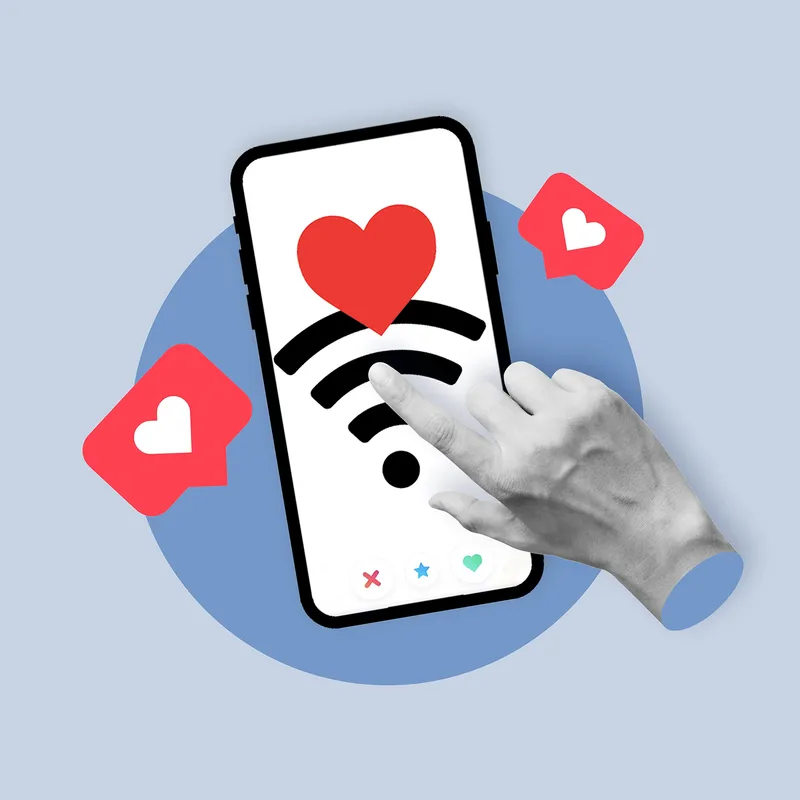Can contra dating help you find the right romantic partner?
This dating trend encourages people to step out of their comfort zone to meet partners who are different from them. While it’s good to be open-minded, how much is too much and where does one draw the line?
Remember how an effervescent Geet, played by Kareena Kapoor Khan, falls for a reserved Aditya Kashyap, essayed by Shahid Kapoor, in the blockbuster movie Jab We Met? It may seem like a classic case of ‘opposites attract' but there’s more to it than meets the eye.
Say hello to ‘contra dating’–a term that has taken over the world of dating and relationships lately. As the term suggests, it is a trend wherein an individual dates someone outside their usual preferences, eventually stepping out of their comfort zone.
“It’s basically a way to broaden your dating horizon, shake up dates that might have become routine, or even meet different people to understand your own preferences better,” explains Ruchi Ruuh, a Delhi-based independent counselling psychologist.
“It also plays into the theory where we seek partners who might have traits and qualities that we lack or covet. It’s about open-minded curiosity and learning rather than putting yourself in uncomfortable situations,” she adds.

Contra dating is a trend wherein an individual dates someone outside their usual preferences, eventually stepping out of their comfort zone I Image credit: Shutterstock
Going against the grain
For the longest time, people have believed that someone with traits and interests similar to theirs would be their perfect match and only such relationships would survive.
But contra dating propagates a different thought process. It’s a great way to break the routine and introduce an element of mystery and excitement back into dating, points out Ruuh.
“It might help the initial sparks fly, as you experience something novel and uncharted,” she adds.

Contra dating may be a good way to break the routine and introduce an element of mystery and excitement back into dating, say experts I Image credit: Shutterstock
Smitha Sahay, an advertising professional from Mumbai, has been, for three years, dating someone whom she’d otherwise consider “incompatible”.
Sahay, who has generally dated older men, decided to take a chance with this man who is six years younger than her.
“I was initially apprehensive about being with a man who is at a different life stage as mine but my current partner defies these stereotypes. He's smart, sensitive, and understands me like no one else,” she says.
Repeated exposure to characteristics usually ignored or even disliked can result in developing a liking for the very same traits, point out experts. It also fosters adaptability and empathy in understanding people who are different from you.
“These experiences also help in self expansion as you are introduced to new lifestyles, activities, and personality types,” says Ruuh.
While one may be attracted to certain kinds of people, this need not mean other potential suitors must be ignored.
“Don’t dismiss someone just because they don’t fit into an image you have in your mind. Sometimes, such people are those one has better connections with. Spend some time and understand if it’s worth giving a shot or not,” advises Pooja Mehta, an independent relationship counsellor from Hyderabad.
Different strokes for different folks: Love languages and their myriad expressions
Having said that, it’s important to ensure there is similarity in values, ethics and the foundational principles that make or break a relationship.
“Initial chemistry doesn’t guarantee long-term compatibility. Research shows that for a relationship to last long it needs to be built on shared values and goals and complementary attachment styles,” points out Ruuh.
Navigating contra dating
Kushal Sinha, a sales professional at an MNC in Delhi, began dating his colleague at work a year ago. She was starkly different from him. While he loved unwinding at home over the weekend, she wanted to go out and party all the time. Sinha would prioritise his family and see them often, while his partner wasn’t close to her folks.

People must understand what attracts them usually and why it isn’t working for them. It’s also essential to evaluate the qualities that are non-negotiable in dating I Image credit: Shutterstock
There were many other differences that made it hard for them to sustain their relationship–particularly their views around religion. Eventually, they broke up within three months.
“It's essential to be similar in ways that matter. If someone is dramatically different from the other, one can adjust for a while, but then all hell breaks loose. And there’s resentment for the other person,” says Mehta.
Ruuh advises people to first understand what attracts them usually and why it isn’t working for them. It’s also essential to evaluate the qualities that are non-negotiable in dating, a.k.a the deal breakers.
Also, it may not be a good idea to go big too soon. Pushing oneself out of the comfort zone completely can lead to desperation and bad choices.
Ruuh gives an example to illustrate this, “If you are a person who generally likes calm outings, don’t go straight into a bungee jumping date.”
Instead, look for little differences that you might want to enjoy, she adds.
Lastly, if things don’t work out, one must switch gears and go back to their usual dating style.
“Many people keep forcing themselves, pushing mental boundaries, only to realise that they are not even enjoying it,” says Ruuh.
The bottom line
Most dating trends and terms aren’t really new. They are just a different way of looking at relationships, keeping with the vocabulary of the current generation.
“Trends come and go but one needs to understand that not everything needs to be indulged in and practised. Strong meaningful relationships are built on basic ideas of attraction, attachment, communication and empathy to understand each other,” advises Ruuh.
While it’s not a bad idea to expand one’s dating pool, it must not be done at the cost of one’s mental health.
“Some people may like the idea of stepping out of their comfort zone and finding someone who is different from them. But it isn’t for everyone,” reiterates Mehta.
Edited by Swetha Kannan







